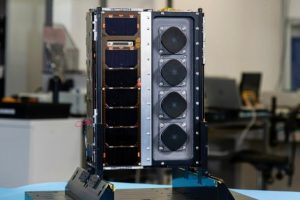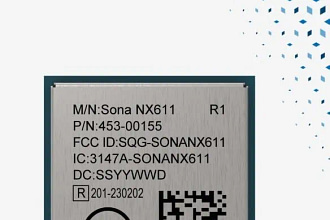The Maritime Domain Awareness (MDA) Satellite will play a key role in detecting ‘dark vessels’ at sea and it has now successfully completed its Critical Design Review (CDR).
Vessels
It means it is on schedule for launch in mid-2025. Using RF, it will be identifying vessels involved in illegal immigration, illegal fishing activities, drug smuggling, and ship-to-ship transfers of goods to evade sanctions.
“The successful progress of the Amber-2 satellite by Horizon Technologies demonstrates the UK’s leadership in advancing space-based solutions for global maritime security,” said Matt Archer, UK Space Agency Director of Launch. “By detecting hard-to-track vessels, Amber-2 will play a pivotal role in safeguarding international waters from illegal activities.”
“We’re looking forward to seeing the satellite launch next year, and to continuing our collaboration with industry on cutting-edge technologies that deliver real-world benefits. Supporting projects like the Amber Programme not only enhances security but also creates high-skilled jobs and fosters innovation across the UK.”
AIS
For its part Horizon Technologies highlighted how RF systems complement the use of AIS.
“The RF Earth Observation market is developing in a path analogous to AIS tracking,” said Horizon Technologies CEO John Beckner. “The RF signals collection market will likely be a combination of terrestrial systems and space-based data.”
Amber 2
The Amber satellite will work by detecting RF signals enabling the identification of satphones and navigation radars. It means that when vessels engaged in illegal activities turn off their Automatic Identification System (AIS) they can still be tracked.
Apparently, several governments have been testing the Horizon Technologies Amber’s Signal Acquisition System with positive results.
Note that there is a single tower-mounted variant, called AmberPersistent. This can collect RF signals (L/S/X band emitters) over an area of 3 million sq/km with real-time 24/7 coverage.
In the past quarter, Horizon technologies has received AmberPersistent orders from NATO and non-NATO governments.
Funding
A £1.2 million investment from the UK Space Agency is supporting Horizon’s satellite development.
The wider Amber Programme aims to meet the MDA requirements of the Royal Navy. This is via the Joint Maritime Security Centre (JMSC) in Portsmouth. A follow-on satellite Amber-3 is also progressing.
Image: Horizon Technologies






